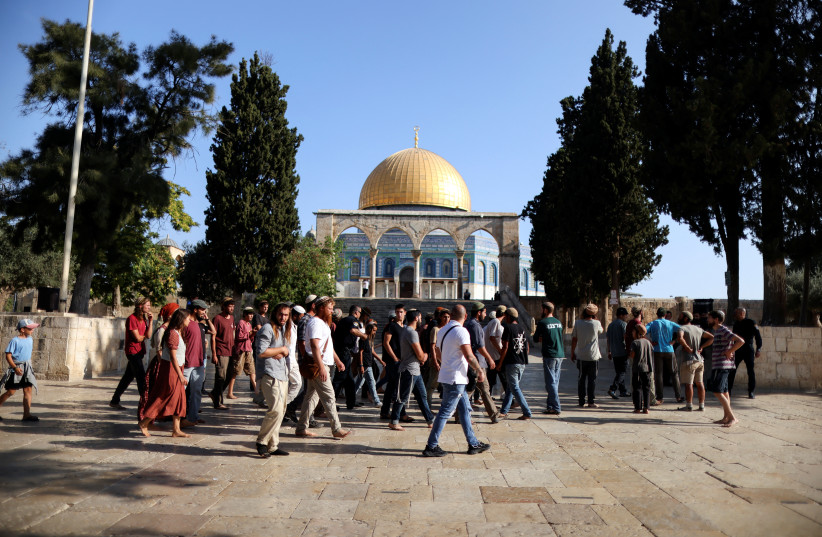The issue of the Temple Mount becoming a geopolitical flashpoint between Israel and its neighbors has robbed us of the opportunity of speaking about it religiously and historically. The increasing numbers of Israelis supporting a Jewish presence on Temple Mount, and the growing number of Jews ascending to Temple Mount – most famously the recent visit by conservative political commentator Ben Shapiro – demand that we ask ourselves: where is this all heading, and what would we like to see happen on the Temple Mount?
If the White House, Saudi crown prince Mohammed bin Salman, Jordan’s Abdullah, China’s Xi Jinping, and the Secretary General of the UN all called and told the Israeli government that they would be delighted to see Israel take full control of Temple Mount, what would we do next?
Differing Jewish views on the matter
To answer this, we must note the different positions among the Jewish people on this matter. The overwhelming number of Orthodox rabbis and the Chief Rabbinate would ask that the area be fenced in and that no one be allowed at the site known as Har Habayit until the messiah miraculously arrives.
On the other side of the spectrum, there is a fringe group of religious Jews who have been anticipating such a moment and would like to engage in a complete reconstruction of the Temple, build the Third Temple, and bring daily sacrifices and offerings so that “the offerings of Judah and Jerusalem shall be pleasing to God as in the days of yore and in the years of old” (Malachi 3).
In fact, in 1962, five years before the Six Day War, the IDF’s chief rabbi, Shlomo Goren, published an article saying that if Israel were to take over Jerusalem, we would be obliged to rebuild the Beit Hamikdash.
These two sides of the spectrum are irreconcilable. Those who believe in fencing the area off until the messiah arrives are not neutral on the matter – it is their belief, and they are the majority. To them, building the Temple and offering sacrifices – or even going up there today – is a far worse problem than the current status quo.
Religious concerns and geopolitical concerns
IT IS IMPORTANT to note that Jewish objections to the ascension to Temple Mount were never grounded in geopolitical concerns. In 1855, on his visit to Jerusalem, Sir Moses Montefiore also visited the Temple Mount, receiving fierce and broad backlash from the local Jewish community.
Interestingly, in 1898 Theodor Herzl was thought to have gone up, although he didn’t, and was condemned in Jerusalem’s Havatselet newspaper, then edited by Eliezer Ben-Yehuda. In 1914, Baron Edmond de Rothschild did the same and was criticized by Rabbi Abraham Isaac Kook for doing so.
It is, therefore, not hard to imagine why Moshe Dayan thought handing control over Temple Mount to the Jordanian Wakf would spare him conflict he did not need. In retrospect, this step probably caused more trouble than it spared, as it gave Jordan a great deal of power in internal Israeli affairs, yet it is easy to understand why Dayan thought it would make things easier.
As polls show, a whopping 63% of Israelis support the right of Jews to ascend the Temple Mount. As the numbers of those ascending continue to increase, and as we see someone centering their run for the Knesset on this topic, it is time we talk about what we would like to see on the Temple Mount. Not because of geopolitical considerations or short-term security concerns. Instead, we should ask where this is all heading and what we would like to see happening on the Temple Mount.
It is only after having that conversation that we can work backward and see if all the efforts to continuously push the line on the Temple Mount is a direction we would like to pursue or not; and how we would like to think of the current challenges relating to this very sacred, charged and captivating place around which our history has been revolving for thousands of years.
The writer is an 11th-generation rabbi, teacher and author. He has written Sacred Days on the Jewish Holidays, Poupko on the Parsha, and hundreds of articles published in five languages.

